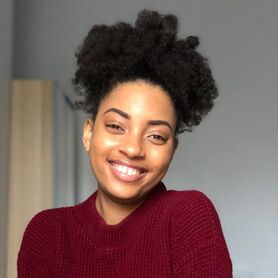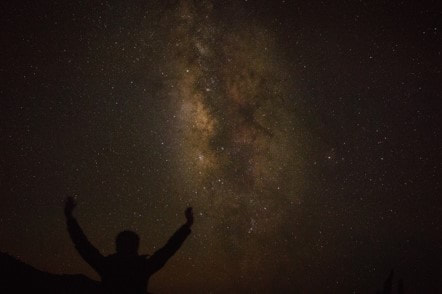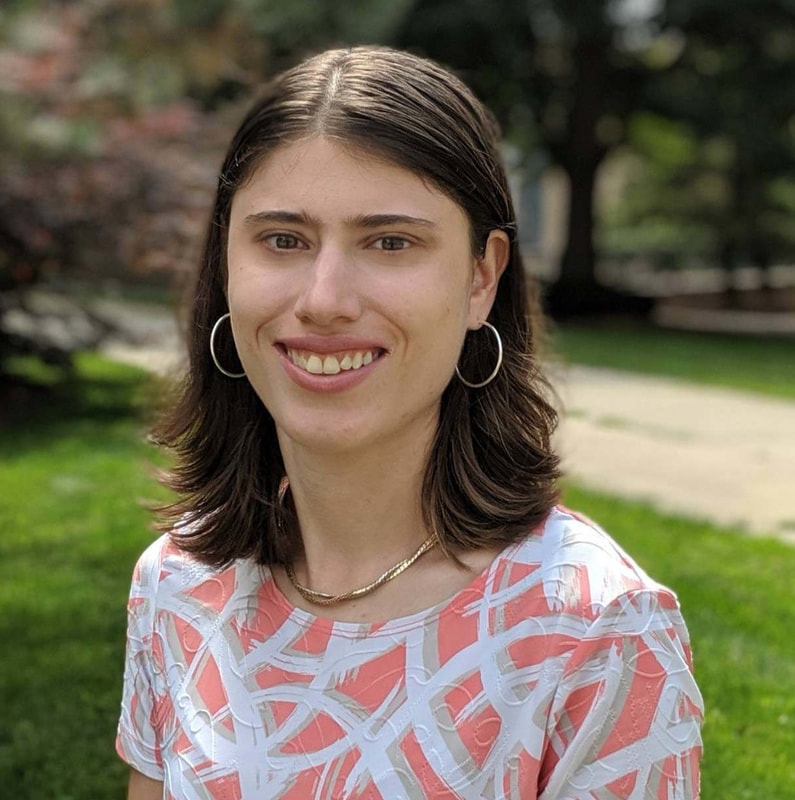10/6/2020
By Cheyanne Lewis
@chylew

Cheyenne Polius, Saint Lucian astrophysicist and co-founder of Saint Lucia National Astronomy Association.
In celebration of #BlackinSciComm week, I got to interview Cheyenne Polius (@CheyennePolius on Twitter), an astrophysicist and science communicator. Growing up in Saint Lucia, she moved to Sheffield, England to study physics and astrophysics. Her journey is unique, and I am excited to tell her story and how she plans to connect her home in the Caribbean to the rest of the universe.
University Adventures
Cheyenne travelled to the UK in 2015 to pursue her dream of becoming an astrophysicist. She had first stumbled across the concept of science communication during her third year, but the desire was there much sooner. She had just finally found the words to describe her passion: “That’s when I really put two and two together to say I love talking about space.”
For her Bachelor’s thesis, she focused on physics education and outreach. She learned how to communicate science effectively and share her knowledge with the public. By reaching out to other students and faculty in the department, she quickly found her footing, later focusing her studies on science impact. She honed her skills as a science communicator, and applied those methods to reach large audiences on Twitter.
Social Media Star
When it comes to managing her social media presence, Cheyenne is not only extremely active, but the content she creates is engaging. She is able to convey facts of science to lay audiences, and she is able to do so in a way that is fun for those who aren’t even familiar with the subject matter. During our chat, she even mentioned how people have reached out to her saying that they didn’t even care about space, and yet they found themselves being sucked into one of her many threads.
One of her most notable masterpieces has been “30 days of space facts” to celebrate her birthday throughout the month of September. Each tweet in the thread either contains an image relating to the fact, or utilizes memes and gifs. Whether intentional or not, this tactic has caught the attention of a lot of non-scientists – young and old!
“Becoming a science communicator on Twitter just kind of happened.” She states, explaining how she cemented her spot on science Twitter, “I’ve always wanted to do it. I just didn’t know what it would look like.”
It wasn’t until she joined #BlackinAstro week that her account really took off. Even though she didn’t necessarily have a plan, everything simply started to fall into place. Not only were people interested in the work she was doing, but she was able to find a community of like-minded folks as well. To her, it came as a shock: “I’m just tweeting. This is what I do.” It was a push in the right direction, and she continued to maneuver through the platform and discover new ways she could reach more people.
One of the latest developments is that Cheyenne plans to start a YouTube channel and a podcast. After the overwhelming support from people she’s never met, she feels now is a better time than ever, and I’m excited to see these projects come to fruition.
Bringing the Science Home
As a science communicator, Cheyenne is actively involved in a few major projects. Not only is she one of the organizers for #BlackinPhysics week (October 25th-31th), but she is also the co-founder and president of the Saint Lucia National Astronomy Association. The association is active on social media through Twitter, Facebook, and Instagram, and is not only important for bringing together space enthusiasts, but has been used to bring awareness to the benefits of space and space technology in Saint Lucia. She is also considered a National Point of Contact for Saint Lucia through the Space Generation Advisory Council (SGAC). Part of her role is to host events and distribute newsletters to raise awareness about the goals of the SGAC. Through this position, she is able to work closely with other young professionals worldwide to aid in space policy development.
When she thinks about home, she understands that space technology can have major environmental benefits in the Caribbean. Unfortunately, for many people in Saint Lucia, there is a large disconnect when it comes to understanding the impacts of space on everyday life. Not enough people care, and Cheyenne aims to change that.
Her ultimate career goal is to connect the Caribbean to space by getting more people curious. She would like to see people be more involved whether that means actively participating in policy discussions, or simply having conversation about space in everyday conversation.

Finding Space for Diversity
When she first arrived in the UK, she admitted to being naive to the reality outside of Saint Lucia. Cheyenne grew up attending a Catholic school with women as teachers in a community that was 90% Black.
Rather than seeing it as a problem, being a BIPOC in academia was more of an observation: “I didn’t realize it could have been a better experience until it was a better experience.” It was more fun to have friends that looked like her, even if everyone was not in the same department. In the beginning, she took advantage of those experiences to build essential relationships. Outside of campus, she also had a supportive community on Twitter, and she never felt alone even if the majority of her online friends were based in the United States.
When the #BlackLivesMatter movement first gained momentum, she felt overwhelming support. There were people she could rely on who not only were there for her during a difficult time, but they could at least understand her pain. There was no need to explain how she felt, and that experience was invaluable.
Changing Academia for the Better
In order to aid the recruitment and retention of BIPOC students and faculty, Cheyenne urges departments to either add a book club to read from BIPOC authors, or encourage networking between departments. This is not only important for bringing in more diverse groups of people, but it would be beneficial to help those who are already there, stay. From personal experience, she understands the feeling of being a Black international student and wanting to drop out. Having that community would provide better and more targeted support for those who struggle with wanting to stay in academia.
And a bit of advice to non-BIPOC mentors: “Do your best, but acknowledge there’s only so much you can do.” Instead, offer help. Even connecting students with a BIPOC mentor can make a huge difference.



Leave a Reply